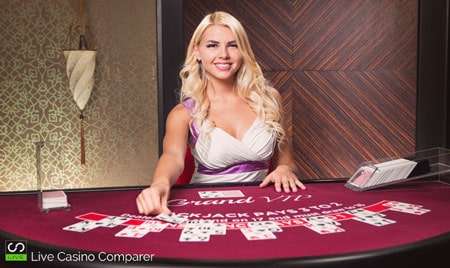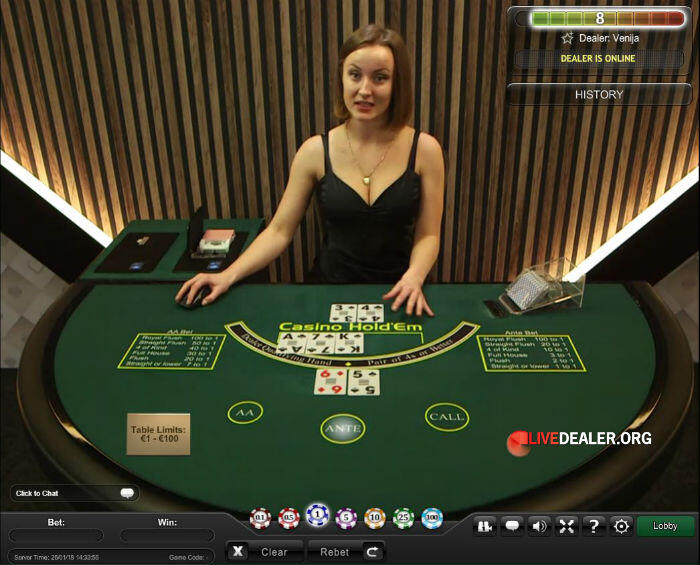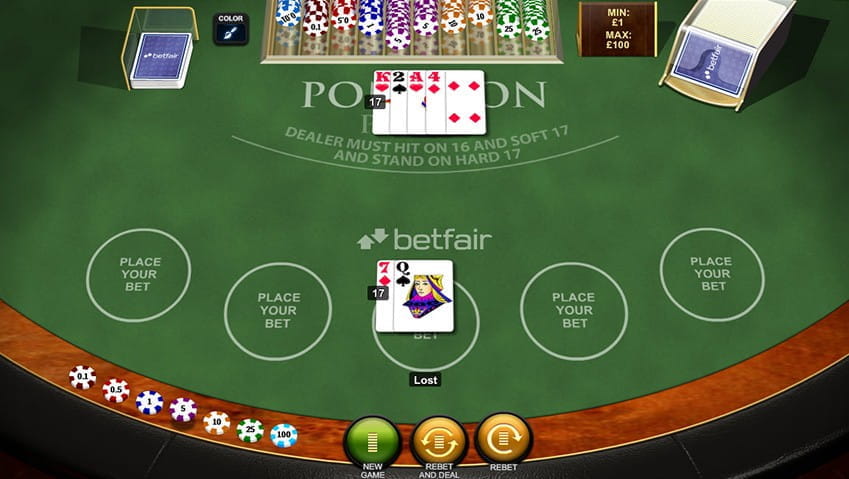Poker Dealer Rules
One of the newest casino table games popping up in casinos across the country is the 'Texas Hold'em Bonus' game. Simply, it pits each player against the dealer in heads-up hands of Texas Hold'em poker. Whoever has the best five-card poker hand at the end, wins.
- Poker Rules Dealer Button
- Pai Gow Poker Dealer Rules
- Poker Rules Dealers Choice
- 3 Card Poker Dealer Rules
- Poker Rules Dealer Error
- Pai Gow Poker Dealer Rules
As in Blackjack, you only have to beat the dealer's hand to win, not the other players at the table. If you're familiar with how to play Texas Hold'em, it should be a snap to understand & sit down and play. Here are the basic rules.
One of the general rules you can use to help you manage the blinds is to remember that, in a tourney, a player can never miss the big blind. If there are only 3 players left, and the dealer gets eliminated, then the button is placed after putting the big blind in the right place. Whether you’re playing physical poker at home, at a bricks-and-mortar casino, or an online casino the role of the dealer determines the order in which the blinds are put up. The dealers are trained to pick out each player's best hand, but you should also be able to tell what your best hand is. Make sure you know what beats what in poker. The dealer determines if the player's hand or the dealer's hand is higher. If the player has the higher hand, he/she wins.
Texas Hold'em Bonus Table Game

Difficulty: Easy
Time Required: 15 minutes
How to Play
Poker Rules Dealer Button
- To start playing, each player puts up an ante wager, and have the option of putting up a bonus jackpot wager as well.
- Each player and the dealer are dealt two cards, face-down. These are the hole cards.
- If you want to play your hand, you put down a bet that's exactly twice the amount of your ante. In other words, if your ante bet was $5 and you want to play, you have to put down exactly $10. If you decide not to play and fold, you lose your ante bet.
- The dealer deals three cards face-up in the center of the table. This is also known as the flop. These three cards are community cards, meaning all players can (and will) use them to make their final five-card hand.
- Players now have the option to bet again, and can only bet the same amount as the ante (so if the ante was $5, the bet is $5 this time). Or players can check, which means they don't bet. You don't have to bet -- you get to keep playing whether you bet or check.
- A fourth community card is dealt face-up. This is also known as the turn.
- Again, players can bet or check. The bet is again the same amount as the ante bet. This is the last opportunity for players to bet. Again, you don't have to place a bet here to keep playing.
- A fifth and final community card is dealt face-up on the table. This is known as the river.
- The dealer turns up his/her cards and shows what the best five-card poke hand the house can make, combining the dealer's hole cards and the community cards.
- Player by player, the dealer will turn over each player's hole cards and determine the best five-card poker hand. To make the best five-card hand each player can use one, two, or none of his hole cards in combination with the five face-up community cards.
The dealers are trained to pick out each player's best hand, but you should also be able to tell what your best hand is. Make sure you know what beats what in poker. - The dealer determines if the player's hand or the dealer's hand is higher.
- If the player has the higher hand, he/she wins. The house pays 1-1 on all bets, and in some cases, the ante as well.
If the player loses, the house takes all the bets & the ante, too.
:max_bytes(150000):strip_icc()/improve-at-texas-hold-em-poker-412242_final-5bb26d0346e0fb0026dfc3f1.png)
Pai Gow Poker Dealer Rules

Bonus Jackpot Wagers
Poker Rules Dealers Choice
- If players have made bonus jackpot wagers, the dealer checks to see if the player's two hole cards win a bonus. This bet is independent of the five-card poker hand, and may be a winner even if the player's hand is a loser.
- Usually, if a player has any pair in the hole, that is a winning bonus hand. Other hole card combinations that usually win bonuses are A-K, A-Q, and A-J. Each casino has slightly diffent hands that payout, which should be posted at the table.
Tips

- Don't play this game as you would a regular game of Texas Hold'em. Since you are only playing the dealer, you can play almost any two cards.
- The only hands that you should probably make a habit of folding are unsuited, unconnected low cards both below seven, such as 2-7 or 3-6.
3 Card Poker Dealer Rules
Poker Rules Dealer Error
- Whenever possible, all rules are the same as those that apply to live games.
- Initial seating is determined by random draw or assignment. (For a one-table satellite event, cards to determine seating may be left faceup so the earlier entrants can pick their seat, since the button is assigned randomly.)
- A change of seat is not allowed after play starts, except as assigned by the director.
- The appropriate starting amount of chips will be placed on the table for each paid entrant at the beginning of the event, whether the person is present or not. Absent players will be dealt in, and all chips necessary for antes and blinds will be put into the pot.
- If a paid entrant is absent at the start of an event, at some point an effort will be made to locate and contact the player. If the player requests the chips be left in place until arrival, the request will be honored. If the player is unable to be contacted, the chips may be removed from play at the discretion of the director anytime after a new betting level has begun or a half-hour has elapsed, whichever occurs first.
- A starting stack of chips can be placed in a seat to accommodate late entrants (so all antes and blinds have been appropriately paid). An unsold seat will have such a stack removed at a time left to the discretion of the director.
- Limits and blinds are raised at regularly scheduled intervals.
- If there is a signal designating the end of a betting level, the new limits apply on the next deal. (A deal begins with the first riffle of the shuffle.)
- The lowest denomination of chip in play is removed from the table when it is no longer needed in the blind or ante structure. All lower-denomination chips that are of sufficient quantity for a new chip will be changed up directly. The method for removal of odd chips is to deal one card to a player for each odd chip possessed. Cards are dealt clockwise starting with the No. 1 seat, with each player receiving all cards before any cards are dealt to the next player. The player with the highest card by suit gets enough odd chips to exchange for one new chip, the second-highest card gets to exchange for the next chip, and so forth, until all the lower-denomination chips are exchanged. If an odd number of lower-denomination chips are left after this process, the player with the highest card remaining receives a new chip if he has half or more of the quantity of lower-denomination chips needed, otherwise nothing.
- An absent player is always dealt a hand, and is put up for blinds, antes, and the forced bet if low.
- A player must be present at the table to stop the action by calling 'time.'
- A player must be at his seat when the first card is dealt on the initial deal or he will have a dead hand. “At your seat” means within reach of your chair. This rule is not intended to condone players being out of their seats while involved in a hand.
- As players are eliminated, tables are broken in a pre-set order, with players from the broken tables assigned to empty seats at other tables.
- The number of players at each table is kept reasonably balanced by the transfer of a player as needed. With more than six tables, table size is kept within two players. With six tables or fewer, table size is kept within one player.
- In all events, there is a redraw for seating when the field is reduced to three tables, two tables, and one table. (Redrawing at three tables is not mandatory in small tournaments with only four or five starting tables.)
- A player who declares all in and loses the pot, then discovers that one or more chips were hidden, is not entitled to benefit from this. That player is eliminated from the tournament if the opponent had sufficient chips to cover the hidden ones (A rebuy is permitted if allowable by the rules of that event). If another deal has not yet started, the director may rule the chips belong to the opponent who won that pot, if that obviously would have happened with the chips out in plain view. If the next deal has started, the discovered chips are removed from the tournament.
- If a player lacks sufficient chips for a blind or a forced bet, the player is entitled to get action on whatever amount of money remains. A player who posts a short blind and wins does not need to make up the blind.
- All players must leave their seats immediately after being eliminated from an event.
- Showing cards from a live hand during the action injures the rights of other players still competing in an event, who wish to see contestants eliminated. A player may not show any cards during a deal (unless the event has only two remaining players). If a player deliberately shows a card, that hand may be ruled dead and the player penalized.
- Inappropriate behavior like throwing cards that go off the table may be punished with a penalty such as being dealt out for a length of time. A severe infraction such as abusive or disruptive behavior may be punished by eviction from the tournament.
- The deck is not changed on request. Decks change when the dealers change, unless there is a damaged card.
- In all tournament games using a dealer button, the starting position of the button is determined by dealing for the high card.
- The dealer button remains in position until the appropriate blinds are taken. Players must post all blinds every round. Because of this, the button may stay in front of the same player for two consecutive hands.
- New players are dealt in immediately unless they sit down in the small blind or button position. In these two cases, they must wait until the button passes.
- In heads-up play with two blinds, the small blind is on the button.
- At stud, if a downcard on the initial hand is dealt face up, a misdeal is called.
- If a player announces the intent to rebuy before cards are dealt, that player is playing behind and is obligated to make the rebuy.
- All hands are turned face up whenever a player is all in and betting action is complete.
- If two (or more) players go broke during the same hand, the player starting the hand with the larger amount of money finishes in the higher tournament place for point and cash awards.
- Management is not required to rule on any private deals, side bets, or redistribution of the prize pool among finalists.
- Private agreements by remaining players in an event regarding distribution of the prize pool are not condoned. (However, if such an agreement is made, the director has the option of ensuring that it is carried out by paying those amounts.) Any private agreement that excludes one or more active competitors is improper by definition.
- A tournament event is expected to be played until completion. A private agreement that removes all prize money from being at stake in the competition is unethical.
- Management retains the right to cancel any event, or alter it in a manner fair to the players.